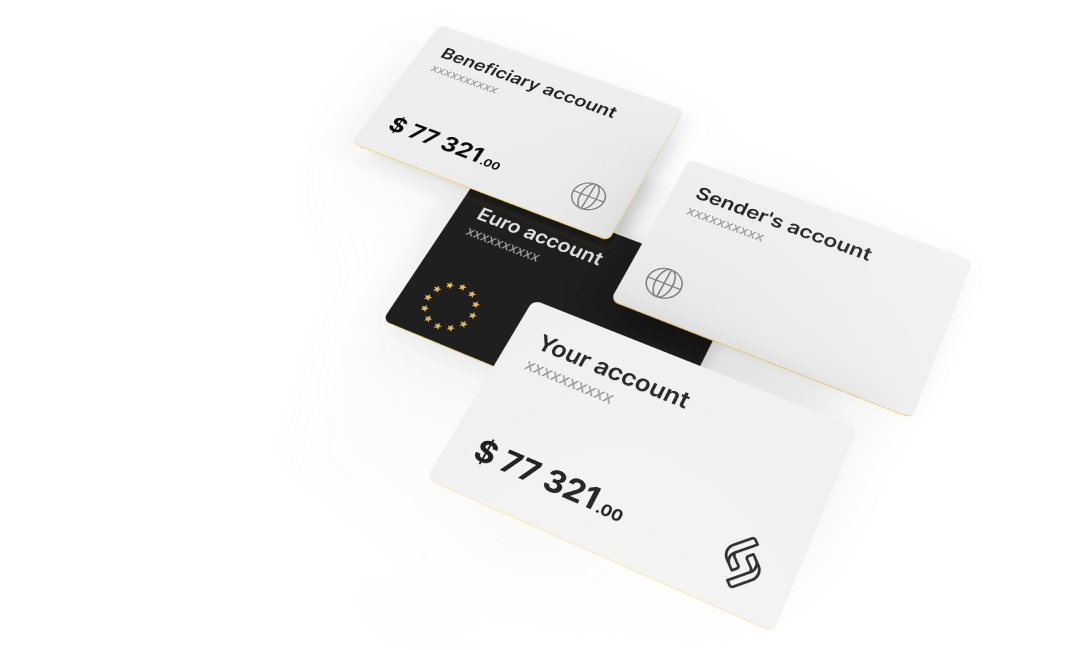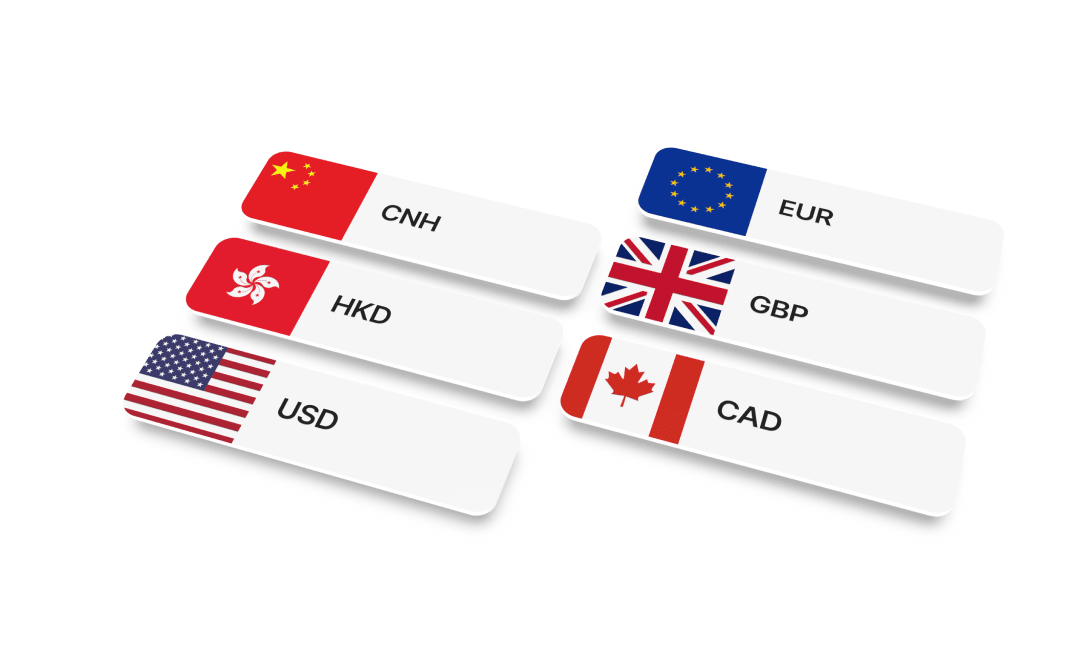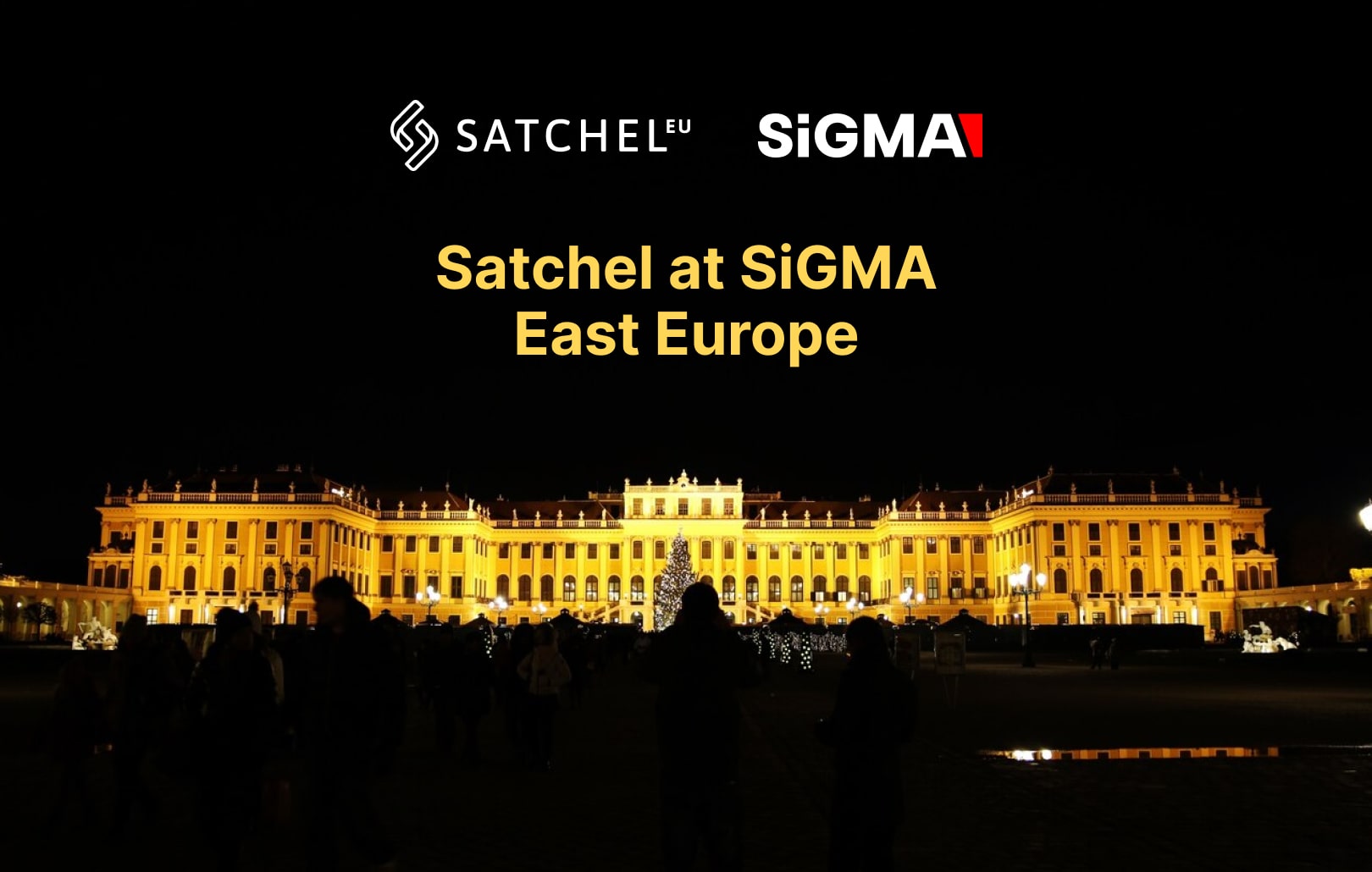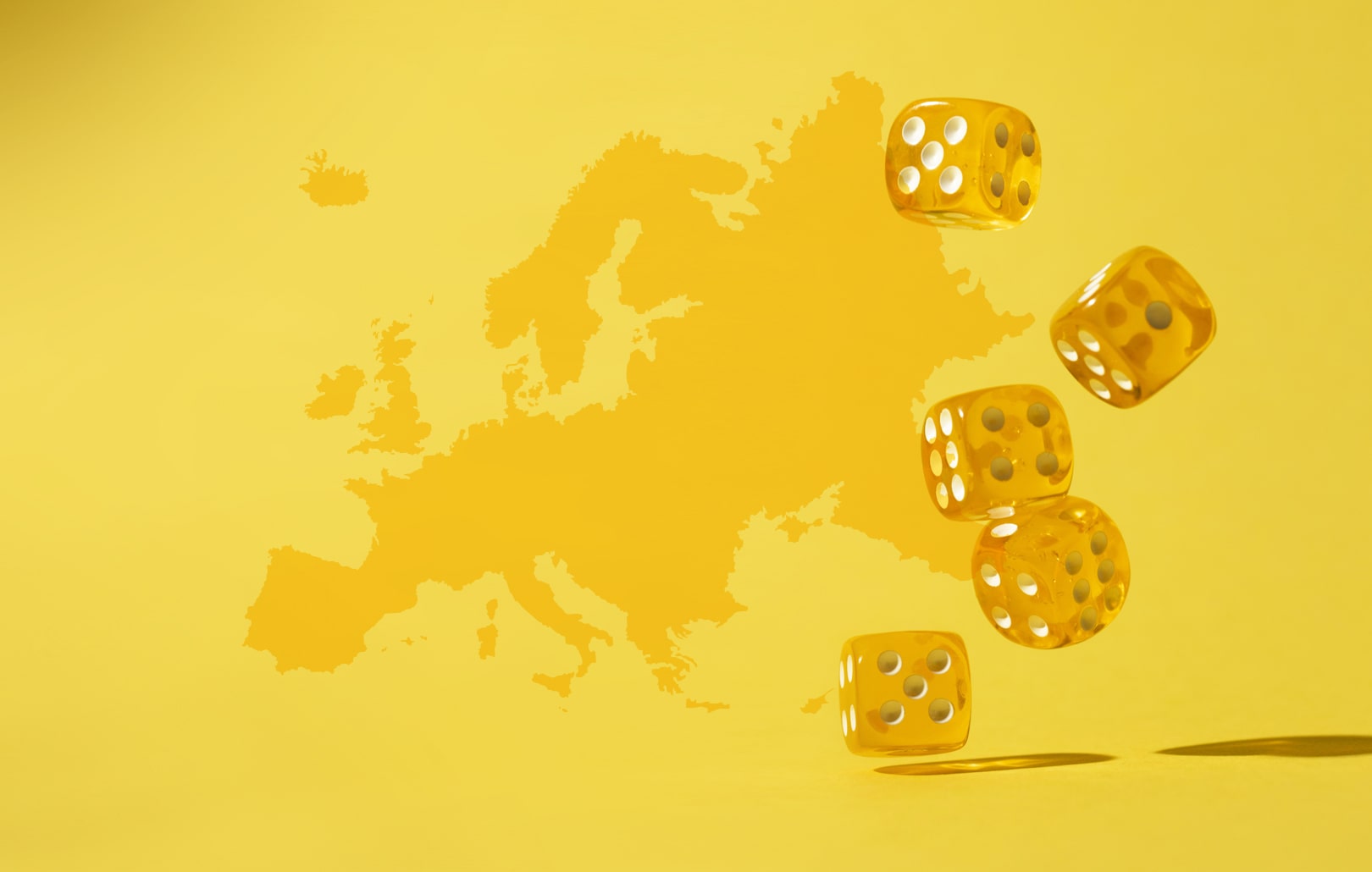7 countries with quickest online gambling license acquisition process
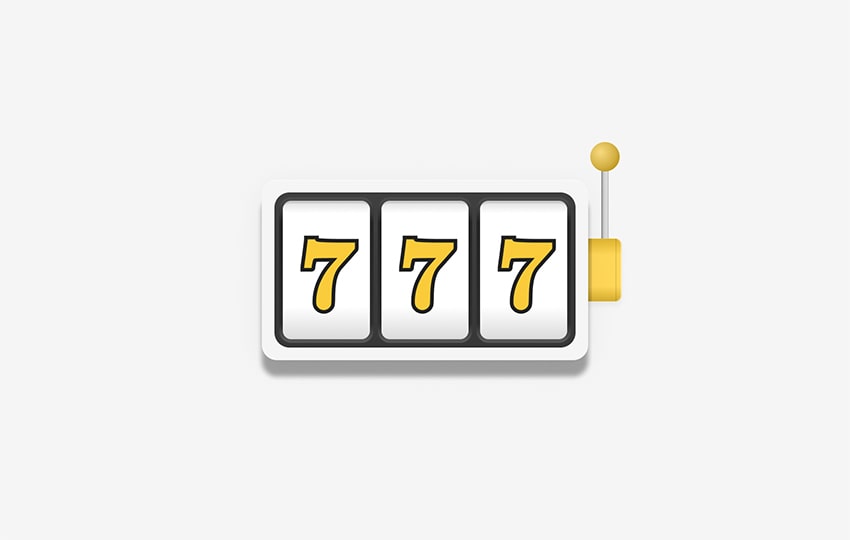
Top 7 Countries for Getting a Betting License
When it comes to obtaining gambling licenses, some countries are known for their streamlined processes and relatively straightforward procedures. These licenses, granted by the regulatory bodies of specific regions, commonly known as online gambling or licensing jurisdictions, are governed by distinct sets of legally codified requirements.
The nature of the gambling license required hinges on various factors such as the type of gaming and betting offered by the operator (e.g., online poker, slots, sportsbook), the jurisdiction relevant to both the operator and players, and the accepted operating currencies. Let’s explore a few of them:
1. Curaçao: The Curaçao e–Gaming Licensing Authority offers one of the easiest paths to license acquisition, making it a preferred choice for sports betting and gaming operators.
The application process is swift, taking up to 4 weeks, and the associated costs are reasonable. Curaçao offers two types of licenses:
- The Master License, often referred to as the Curacao basic license (White label);
- The Sub-License, which grants equivalent rights without the ability to extend to third parties (Turnkey).
This jurisdiction’s singular license covers a broad spectrum of interactive eGaming activities, spanning casinos, sports betting, exchanges, lottery, and games of skill and chance.
A significant advantage of Curaçao’s online gambling license is the highly favorable tax rate of 2% on net profit, applicable until 2026. To initiate the licensing process, a one-time pre-application fee starting from €750 is required. While all-inclusive basic packages begin at €1,150 per month or €10,500 per year, it is advisable to verify the latest information before proceeding with the application.
It’s worth noting that certain markets and regions have recently seen a spike in regulatory initiatives. For instance, in 2023, Chile and Brazil implemented laws requiring operators to hold local licenses to operate. Furthermore, the entire betting market is eagerly anticipating the forthcoming changes in Curacao as the licensing process undergoes significant revisions.
2. Malta: The Malta Gaming Authority (MGA) is the source for licenses covering various gambling activities, such as casino games, sports betting, and lotteries. While the processing time takes approximately 12-16 weeks, Malta stands out for providing a secure business environment and distinct licenses tailored to different gambling pursuits.
The MGA categorizes licenses into two main types:
- Gaming Service License (B2C): This permits the offering or execution of gaming services to consumers;
- Critical Gaming Supply License (B2B): This authorizes business-to-business operations involved in providing critical gaming supplies.
A license fee of €25,000 is applicable, along with a €5,000 charge for processing the application. License renewal incurs an additional €5,000 fee. The B2C Gaming Service license typically carries a fixed annual fee of €25,000, with the exception being controlled skill games, subject to a €10,000 annual fixed license fee. For B2B Critical Gaming Supply licensees, the license fee varies based on annual revenue, ranging from €25,000 to €35,000. Malta applies a 5% gaming tax to revenue generated from players based in Malta, while remote gaming operators face a 35% corporate tax rate on their profits.
3. Anjouan, Comoro Island: The Anjouan Gaming Commission grants online gambling licenses in Anjouan, one of the Comoros Islands. Obtaining an Anjouan gambling license is straightforward, with reasonable approval times. The Anjouan Online Gambling License is versatile and also accessible to companies situated outside of Anjouan. It is a cost-effective and feasible option, comparable to Curaçao’s license. With upcoming regulatory changes in Curaçao, operators are exploring alternative jurisdictions like the Isle of Man, Kahnawake, and Malta. Anjouan, previously overlooked, has gained attention recently due to its Online Gambling License attracting more operators seeking alternatives. It holds recognition from European banks, EMIs, financial institutions, and B2B gaming companies.
Licensees must adhere to the On-Line Gaming Act, 2005, ensuring player protection, anti-money laundering measures, and financial reporting. If all documents are properly prepared and the license application form is accurately completed, the process typically takes up to 3 weeks.
Anjouan’s license is among the most affordable offshore options, making it attractive for launching online gambling platforms, particularly for smaller companies, with an approximate cost of 17,000 EUR. The minimum paid-up capital required is 250,000 EUR.
While Anjouan doesn’t levy direct taxes on license holders, local taxes may apply to businesses operating within its jurisdiction.
4. Isle of Man: The Isle of Man Gambling Supervision Commission (GSC) is the authority granting licenses for both land-based and online gambling operations, with a primary focus on player protection and the maintenance of favorable tax rates. To ensure a reliable gaming environment, the inspection of software by reputable companies is a key aspect of the local regulatory approach.
The principal legislation governing online gambling in the Isle of Man is the Online Gambling Regulation Act (OGRA). Upon approval by the Inspectorate and receipt of the application fee, the license processing period typically spans 10-12 weeks. The initial application fee stands at £5,000. For a five-year OGRA license, the current annual costs are as follows:
- £50,000 for a network services license or token-based software supplier license;
- £35,000 for a standard license;
- £5,000 for a sub-license.
Corporate income tax in the Isle of Man maintains a standard rate of 0%, while the VAT rate stands at 20%, making it an attractive jurisdiction for gambling operators.
5. Gibraltar: Gibraltar issues licenses for a range of gambling activities, including poker, bingo, betting, and online casino websites. All gambling operations conducted in Gibraltar must align with licensing regulations outlined in the Gambling Act of 2005. The licenses are granted for a duration of 5 years, and the application process typically spans 3-6 months, incorporating robust software testing systems.
The Gibraltar licensing authority imposes a fee of approximately £100,000 for B2C gambling licenses and £85,000 for B2B gambling licenses. In addition, B2B license holders are obligated to pay an annual license fee of £100,000, while B2C license holders incur an annual fee of £85,000, irrespective of their income levels.
A significant allure of the Gibraltar Gambling license lies in its advantageous taxation system. Holders of remote gambling licenses are subject to a minimal 0.15% revenue tax annually. Furthermore, companies engaged in gambling operations in Gibraltar are subject to a corporate tax rate of 10%, with no sales tax or VAT.
6. United Kingdom: The UK Gambling Commission (UKGC) stands as a highly esteemed authority, garnering respect from both industry players and operators. Securing a remote license from the UKGC provides operators the legal framework to conduct, advertise, and welcome players from the UK. The UKGC oversees a spectrum of gambling-related businesses, encompassing arcades, sports betting, bingo, casinos, and lotteries.
Operating license applications typically undergo a 16-week processing period, contingent upon the submission of comprehensive information. Valid for an initial period of 3 years, the license can be extended accordingly. Online submissions are the exclusive method for license applications. To maintain the license’s validity, operators need to remit both an application fee and an annual fee. The fee payment is submitted concurrently with the application, and invoices for annual fees are dispatched to the operator’s head office address via regular mail, six weeks before the due date.
One noteworthy challenge in obtaining a license from the UKGC is the relatively high tax rates, particularly a 15% income tax.
7. Kahnawake, Canada: It is one of the earliest jurisdictions to regulate online gaming. The Kahnawake Gaming Commission oversees gambling licensing in Kahnawake, a Mohawk Territory situated in Quebec. The approval timelines vary depending on the type of license and the completeness of the application; typically, it takes between 8 to 16 weeks. In Kahnawake, there are various types of gambling licenses, each with distinct purposes:
- Interactive Gaming License: Enables online casino operation with Kahnawake domain hosting.
- Client Provider Authorization: A single license covering all online game types, such as casino, baccarat, slots, bingo, poker rooms, and interactive games.
- Live Dealer Studio Authorizations: Required for operating and managing studios broadcasting live dealer games.
- Secondary CPA: Necessary for companies seeking expansion into new markets.
- Key Person License: Required for managing bodies of companies holding a Client Provider Authorization.
License costs are contingent upon the type of gambling activity. The typical cost of services to get an international gambling license in Kahnawake is between 21,000 and 30,000 EUR. The final price depends on each client’s specific needs. Here’s an estimate of the costs:
- License application fee: $25,000 USD
- Each Key Person License application fee: $5,000 USD
- Mandatory system testing and application review: $15,000 USD
- Extending the license: $10,000 USD
No gaming tax is imposed in Kahnawake, and all B2C games fall under a single license without classification. Neither opening a local office nor registering a company in Kahnawake is required.
To simplify, key details are summarized in the table below:
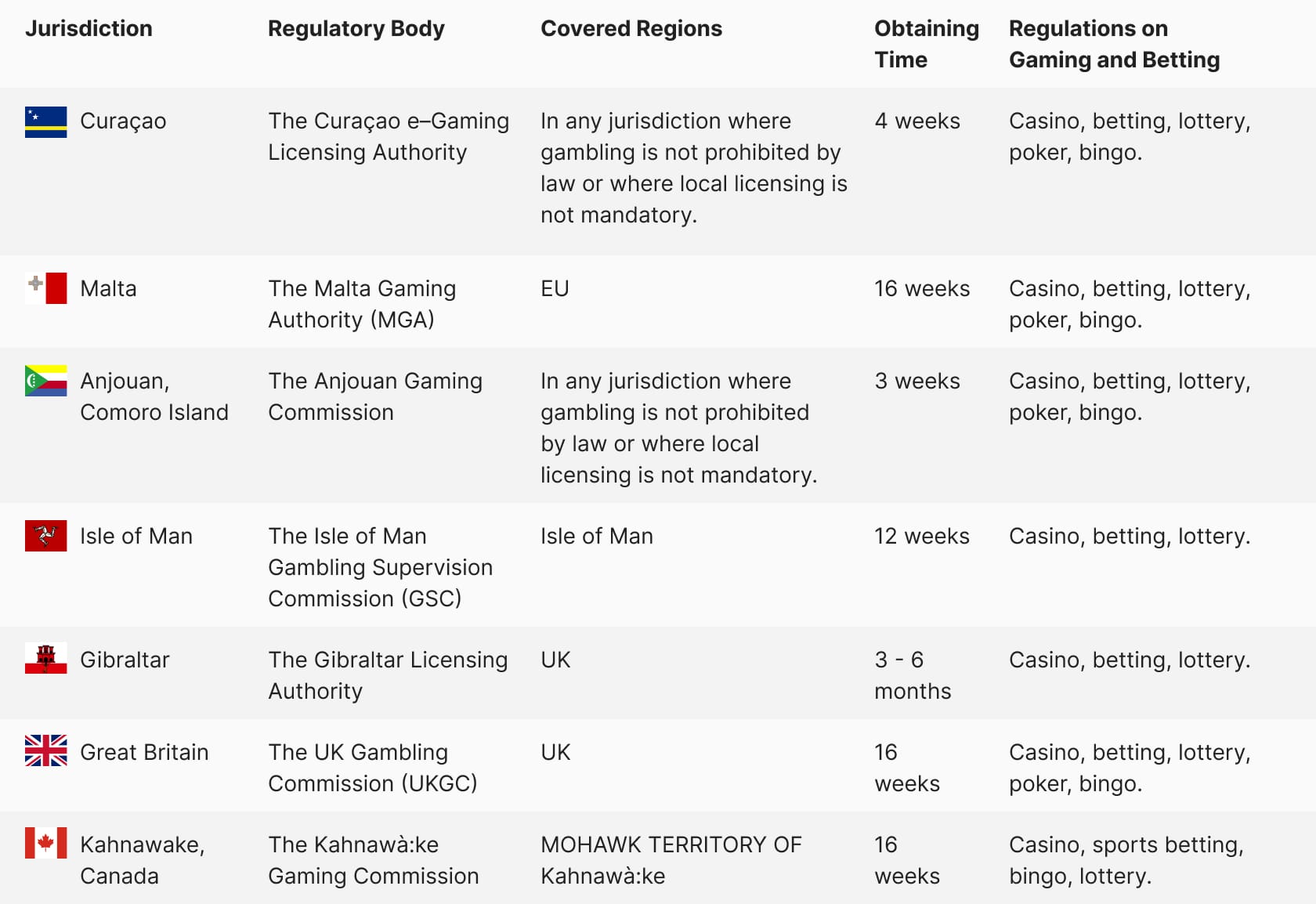
To stay updated on regulations, it is recommended to refer to official government websites for the latest information. Whether you’re a seasoned player in the online gambling industry or just starting out, Satchel, an experienced EU fintech company, is your dependable payment partner.
